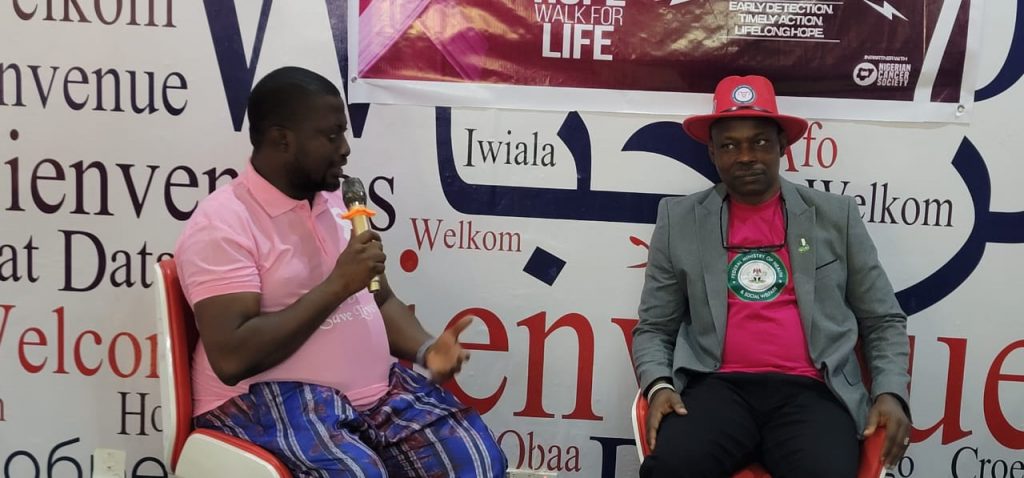Health
Sudden Death On The Rise, Amidst Economic Hardship

The recent sudden death of one of the best Journalists, John Olasunkanmi Oba, the sudden death of Essien Etop Andrew, a Nigeria Customs Service (NCS) deputy controller in charge of finance, administration, and technical services, the untimely death of Akwa Ibom State Police Commissioner, Mr. Waheed Ayilara, the death of Legendary Nigerian singer and actress, Onyeka Onwenu after slumping at the birthday party. Senator Patrick Ifeanyi Ubah; and thousands of unreported untimely and sudden deaths have once again raised the issue of regular health screening by Nigerians.
The grim reality in Nigeria is that many people are still slumping and dying without warning, their lives abruptly cut short by a silent killer they may not even know they have.
THE GLEAMER NEWS looks at the causes and many factors contributing to this numberless untimely death
While death is an inevitable part of life, the sudden and medically- related nature of these deaths raises pressing questions about the prevalence of undiagnosed and poorly managed hypertension in the country.
Recent studies reveal that hypertension is becoming increasingly common in younger populations, and the role of lifestyle factors in the rising cases.
Many Nigerians are today worried about many things. The challenging economy is pushing many to the brink. Now that schools are preparing to resume, many parents are already bothered about school fees and other needs of their children. This is expected, but people must go soft on thinking and ruminating over the problems. Worry and anxiety will only aggravate the situation. We must devise some means to deal with what we cannot change.
According to many medical experts, several predisposing illnesses such as high blood pressure, stress, high blood levels of cholesterol, and high blood sugar may precipitate a sudden death.
In a country where many citizens resort to self-medication to bypass the cost of seeing a medical doctor or a pharmacist, abuse of medications can result in dangerous drug interactions with lethal consequences, particularly among those who have pre-existing medical problems.
Many people who are obese or suffering from ill-managed diabetes can easily fall victim to heart disease and unexpected death.
Heart disease, as experts have pointed out, is the most common cause of an unexpected sudden death in all age groups. It is more prevalent in adults in their 30s and 40s and affects men twice as it does women. Some of the diseases are discovered and treated while the person is alive while, among many others, they may go unnoticed until tragedy occurs. It could also occur because of a wrong diagnosis.
Incidentally, many of these ailments come without warning signs. In the case of sudden cardiac arrest for instance, over half of the victims die without symptoms. When there are signs, they come in the form of a “racing heartbeat or they may feel dizzy, alerting them that a potentially dangerous heart problem has started.” Other symptoms listed include headache, chest discomfort, breathing problems, blurring vision, and convulsion.
As for Adeola Ajibare, a cardiologist at Lagos State University Teaching Hospital and a senior lecturer at the University of Lagos College of Medicine in one of his appeals said “Hypertension has become an epidemic in our society and there is a need to nip it in the bud.
Ajibare stressed the importance of both medical check-ups and lifestyle changes to combat hypertension.
“Exercise, reducing salt intake, and avoiding smoking and excessive alcohol consumption are crucial. Weight loss can also significantly lower blood pressure. For those diagnosed with hypertension, consistent medication use is essential to prevent complications.”
Health
APC Youth Leader, Health Minister, Others Champion “Going Pink Walk” for Breast Cancer Awareness in Abuja


Joel Ajayi
It was a vibrant gathering of energetic young men and women across the Federal Capital Territory (FCT) on Saturday in Abuja, as they joined the “Progress in Pink Walk”, a non-competitive awareness march organized by the All-Progressives Congress (APC) Youth Wing to mark Breast Cancer Awareness Month.
The event, themed “Walk for Hope, Walk for Life,” was commenced at The Nest — A Place Where Greatness is Hatched, an over 4 kilometres walk aimed at encouraging early detection, promoting timely medical intervention, and offering hope to those affected by breast cancer.
Leading the walk was the APC National Youth Leader, Dr. Dayo Israel, who has remained consistent in championing initiatives that promote youth empowerment, health consciousness, and community impact.
Over the years, Israel has spearheaded several programs designed to enhance the capacity and wellbeing of young Nigerians.
Globally, October is recognized as Breast Cancer Awareness Month — a period dedicated to increasing awareness, encouraging prevention, and supporting those battling the disease. The APC Youth Wing’s initiative aligns with this global campaign, demonstrating the party’s ongoing commitment to public health advocacy and youth-driven change.
Speaking after the walk, an elated Dr. Dayo Israel explained that the initiative was organized to create awareness among women, both young and old, on the importance of knowing their bodies and seeking medical attention early.
“We want women to know their breasts so well that if anything unusual happens, they act quickly.
“Cancer doesn’t occur overnight it develops over time. awareness, and early detection are key to saving lives,” he said.
He added that the walk also sought to promote fitness as a vital component of a healthy lifestyle and to encourage women to adopt positive habits that support their wellbeing and happiness.
In his remarks, the Minister of State for Health and Social Welfare, Dr. Iziaq Adekunle Salako commended the APC Youth Wing for taking proactive steps to raise awareness about a critical health concern.
“With this step you have taken today, more Nigerians will become aware of the dangers of late detection.
“Unfortunately, eight to nine out of ten breast cancer cases in Nigeria are detected late — a situation we must change through constant awareness and screening,” he said.
He emphasized the importance of prevention, urging Nigerians to take their health seriously through regular check-ups, healthy living, and avoidance of risk factors like smoking.
Also speaking, the President and CEO of the Nigerian Cancer Society, Prof. Abidemi Omonisi, noted that breast cancer remains one of the most prevalent forms of cancer in Nigeria, accounting for up to 40–50% of all cancer cases.
“Breast cancer remains a major public health challenge. Exercise plays a vital role not only in prevention but also in improving outcomes for people living with cancer and other non-communicable diseases such as diabetes and hypertension,” he said.
Prof. Omonisi stressed the need for a community-based response to cancer similar to the national efforts used to combat HIV/AIDS.
“We must involve everyone from schools and youth groups to community organizations to build resilience and eliminate the fear and stigma surrounding cancer,” he added.
He praised the APC Youth Wing for leading the charge, noting that young people, with their creativity and innovation, are uniquely positioned to drive impactful awareness campaigns both online and offline.
The “Progress in Pink Walk” concluded with participants pledging to continue spreading the message of early detection, regular screening, and healthy living underscoring that together, Nigerians can defeat breast cancer through awareness, unity, and action.
-

 Featured6 years ago
Featured6 years agoLampard Names New Chelsea Manager
-

 Featured6 years ago
Featured6 years agoFG To Extends Lockdown In FCT, Lagos Ogun states For 7days
-

 Featured6 years ago
Featured6 years agoChildren Custody: Court Adjourns Mike Ezuruonye, Wife’s Case To April 7
-

 Featured6 years ago
Featured6 years agoNYSC Dismisses Report Of DG’s Plan To Islamize Benue Orientation Camp
-

 Featured4 years ago
Featured4 years agoTransfer Saga: How Mikel Obi Refused to compensate me After I Linked Him Worth $4m Deal In Kuwait SC – Okafor
-
Sports3 years ago
TINUBU LAMBAST DELE MOMODU
-

 News10 months ago
News10 months agoZulu to Super Eagles B team, President Tinubu is happy with you
-
Featured6 years ago
Board urges FG to establish one-stop rehabilitation centres in 6 geopolitical zones
